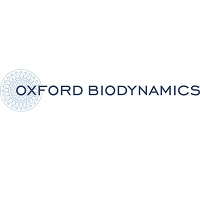Christian Hoyer Millar, Chief Executive Officer of Oxford BioDynamics, said:
“We are pleased to have entered into this new agreement with a major US biopharmaceutical company in the dynamic field of immuno-oncology, as there is a high need for the identification of epigenetic biomarkers to evaluate drug performance in therapeutic development programmes. This agreement represents the fifth contract we have signed in IO, continuing to validate the potential of our EpiSwitch™ technology in this space.”
Oxford BioDynamics Plc (LON:OBD) has today announced that it has entered into its fifth collaboration agreement for the development of predictive biomarkers for immuno-oncology (IO) therapeutics.
· Agreement with major US biopharmaceutical company demonstrates value of the wide range of immuno-oncology biomarker applications recently developed using EpiSwitch™
· High resolution mapping with the EpiSwitch™ technology will be used to evaluate risks, linked to the clinical benefit of treatment
IO is a fast-growing field, with a number of therapies for the treatment of cancers, in particular immune checkpoint inhibitors, demonstrating a highly efficacious response in certain patients. However, many current IO treatments remain limited in their utility due to a low response rate, and significant subsets of patients not benefiting from a clinically meaningful response to treatment.
There is a need for robust stratification of patients in order to accurately exclude those that will not respond to these IO therapeutics, as well as for strong differentiation of individual IO treatments from alternative therapeutic options. OBD has already established its position in this field with a number of robust biomarker-based predictive patient stratifications for several IO assets, including both PD-1 and PD-L1 inhibitors.
In this further expansion of its technology application, Oxford BioDynamics will use its EpiSwitch™ platform to offer high resolution mapping of epigenetic profiles in patients, so that epigenetic risks, in the context of information from other regulatory modalities, could be linked to the clinical benefit of treatment.
This represents the fifth collaboration agreement that Oxford BioDynamics has entered into in the IO field. Financial terms of the agreement are not disclosed.

